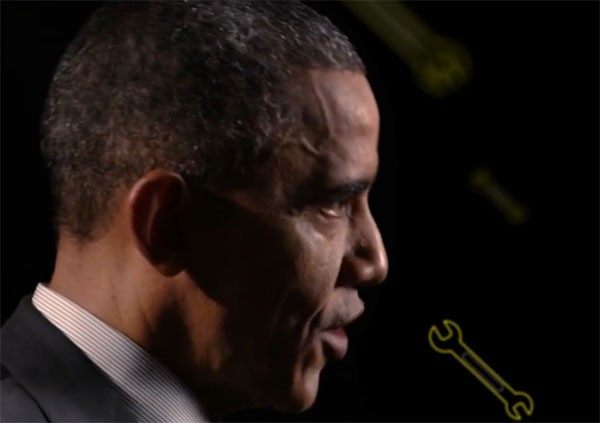This week, Ezra Klein’s “explainer” news site Vox scored an interview with President Obama. Given that Vox is not yet a year old, one might expect some backbiting from the more established media outlets that did not score the big interview.
When Politico Magazine put up a piece with the subhead, “Interviews with the President are always useless. Vox’s was no different,” it seemed the backbiting had arrived on schedule.
In fact, Politico’s Jack Shafer does much better than that. He points out that most presidential interviews are really just a chance for the President to filibuster and say nothing news-worthy. And if success is nigh-impossible, then failure isn’t really worth commenting on. But then, Shafer goes beyond that to skewer Vox’s whole pretension to be an objective news source in a delightfully entertaining way.
In the example of Klein and Yglesias, they’re less interested in interviewing Obama than they are in explaining his policies. Again and again, they serve him softball—no, make that Nerf ball—questions and then insert infographics and footnotes that help advance White House positions. Vox has lavished such spectacular production values on the video version of the Obama interview—swirling graphics and illustrations, background music (background music!?), aggressive editing, multiple camera angles—that the clips end up looking and sounding like extended commercials for the Obama-in-2016 campaign. I’ve seen subtler Scientology recruitment films.
Have a look at the clips in question if you think Shafer is exaggerating. There’s a moment in the first clip where Obama is gesturing as he speaks and he raises a thumb. The thumb is suddenly circled by a kind of graphical target as if Vox is going to verify his thumbprint. In another clip Obama is discussing tools, and a yellow wrench seems dangerously close to floating up his nose. The whole show is reminiscent of something from Tony Stark’s laboratory. You expect the voice of Jarvis to pipe in at any moment with a followup question.
Explainer journalism, as practiced by Klein, purports to break down complex policy issues into laymen-friendly packages that are issued from the realm of pure reason. But as Pascal-Emmanuel Gobry succinctly put it last summer in The Week, “Vox is really partisan commentary in question-and-answer disguise” that “often looks more like a right-wing caricature of what a partisan media outlet dressed up as an explainer site would look like.”
Exactly right. If you want to know what the best argument against any progressive policy is, figure out which one Vox is studiously ignoring in their explainer cards.
As a sometime partisan commenter, I venerate partisan commentary because it can cut through the protective Styrofoam cladding politicians love to wrap their messages in. But if you’re going to be partisan about your journalism, if you’re going to give the president an easy ride, you’ve got to be clean about it! You can’t pretend, as Klein did when he founded Vox, that you’re taking a neutral approach to news and that all you’re doing is making the news “vegetables” more palatable by roasting them to “perfection with a drizzle of olive oil and hint of sea salt.” Klein and Yglesias are like two Roman curia cardinals who want us to believe their exclusive interview with the pope is on the level.
Vox’s pretense of neutrality is really its most grating feature. When Klein launched the site, he did so with a post about the science of cultural cognition. The promise (or premise) of Vox was to somehow rise above these primitive tendencies through scientific self-awareness and willpower. In fact, Vox has simply played for the home crowd over and over.
Vox has also humiliated itself dozens of times in the past year. In some cases, it corrects the mistakes, and in some cases, it pretends they aren’t mistakes. The final irony is that Vox only got the Obama interview because it is reliably progressive and prone to do exactly what it did, i.e. boost the President rather than challenge his assumptions. If Vox were really the site Ezra Klein claimed it should be, this interview would never have happened.


COMMENTS
Please let us know if you're having issues with commenting.